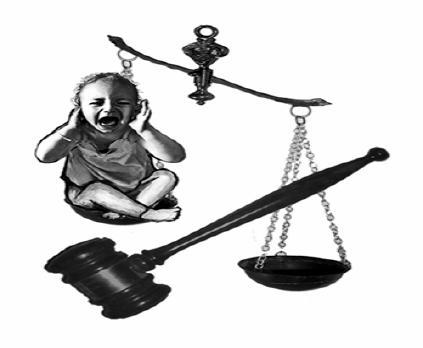One of the most important issues of any divorce case is child custody. When contemplating a divorce, you must also contemplate the consequences of a divorce on children and what the court will be looking at in regards to child custody.
Types of Child Custody
Under Illinois law, a court can order either joint custody to both parents or sole custody to one parent. These terms refer not only to how much visitation a parent will receive, but rather to the power the parent has over decisions in regards to the children.
Joint Custody
Joint custody is where both parties have equal say in decisions that involve their children. These decisions include things regarding religion, education, healthcare, and other important issues. In most joint custody arrangements, if the parties cannot come to an agreement regarding these important issues, the parties will be sent to a mediator to resolve the dispute. If the mediator cannot solve the issues, then either party has the right to petition the court for a resolution of the issues.
When the court orders joint custody or the parties agree to joint custody, the written agreement must include how the decisions are to be made between the parties, a means of resolving disputes between the parents, and a periodic review of the terms of the agreement. Additionally, under joint custody, both parents will enjoy joint physical custody of the children. Though this might not be a complete 50/50 split of time, it should be a fair split of time between the parties.
Sole Custody
Sole custody is where one parent is granted the power to make all major decisions regarding the children. In a sole custody situation, the children reside with the custodial parent and the non-custodial parent is subject to visitation rights.
When leaving the decision of joint custody vs. sole custody to the court, the court will look at the best interest of the child factors in making its decision, including:
- The parent's wishes as to custody;
- The child's wishes as to custody;
- The relationship between the child and his/her parents and or siblings, as well as any other significant person;
- How well the child is adjusted to his/her home, school and community;
- The health, both mentally and physically, of all everyone involved;
- Any threat of violence, either mental or physical by the potential custodian, no matter whether that violence is directed toward the child or another person;
- Any abuse directed at the child or any other person in the household;
- The parent's willingness and ability to facilitate and encourage a close and continuing relationship between the other parent and the child;
- Whether one of the parents has been convicted as a sex offender; and
- Whether one parent is in the military and that parent's family-care plan for deployment.
Once a decision by the court is made regarding custody, a parent can petition the court for a modification of custody after two years has passed, if there is clear and convincing evidence that a substantial change in circumstances has occurred, or before the two years has passed if there is evidence that the child's mental and/or physical health is in serious danger.
Our experienced Naperville family law attorneys understand that deciding child custody issues can be a stressful and confusing time in your life. The goal of our family law attorneys is to ensure that you understand both the legal and practical implications of your decisions. If you or your spouse is considering a child custody issues, please contact us today. We can help you understand the law and develop a plan of action that is in the best interest of you.


